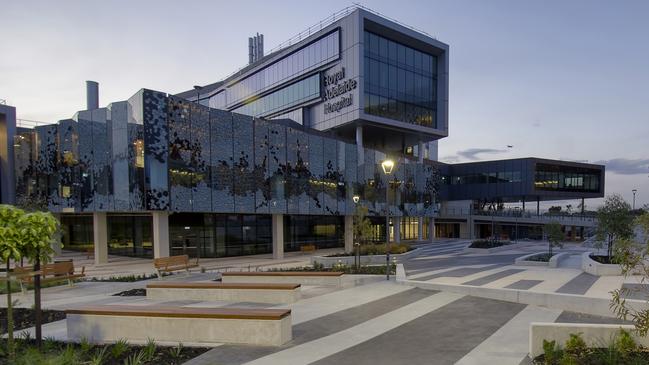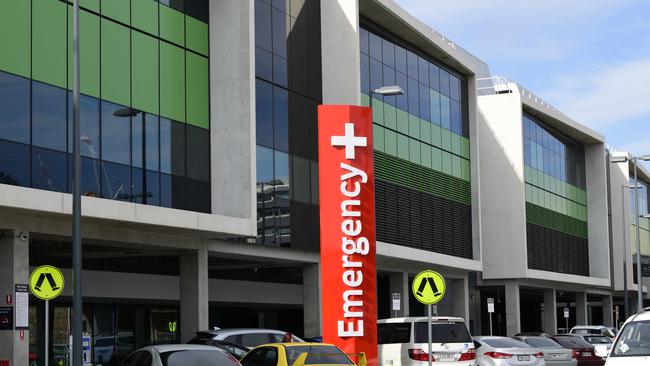Royal Adelaide Hospital is slowest of 14 comparable Australian hospitals, partly because patients don’t want to leave
The RAH is chronically gridlocked partly because “patients enjoy being there and do not want to be sent home” — and as a result ranked at the bottom of a list of 14 major Australian hospitals for patient stay times, an audit has found.
SA News
Don't miss out on the headlines from SA News. Followed categories will be added to My News.
The Royal Adelaide Hospital is chronically gridlocked partly because “patients enjoy being in the RAH and do not want to be sent home”, an audit has found.
The $2.4 billion hospital – offering all single rooms with ensuites, views including to Adelaide Oval and each with a bed for a partner to stay overnight – is now full of people, including many from the northern suburbs, wanting to stay, according to consultants KordaMentha.
The forensic accountants have been brought in by SA Health to rein in the Central Central Adelaide Local Health Network’s ballooning budget deficit.
The KordaMentha report shows the RAH is the slowest among 14 comparable hospitals in the nation for treating and then discharging patients.

The report shows long-stay patients are a “significant issue” who “occupy beds that could otherwise be used by new patients” at great cost.
It echoes long known medical views that long-stay patients face high risk of hospital acquired complications and are a cost burden.
The report states causes of extended stay at the RAH include:
PATIENT attitudes to being discharged – “patients enjoy being in RAH and do not want to be sent home”.
POORLY managed patient flow.
SHORTCOMINGS with CALHN’s discharge procedures, including a lack of criteria-led discharge process meaning doctors, rather than nurses, must make discharge decision.
It notes there is simply a “lack of appropriate facilities and services to discharge to.”

Health Minister Stephen Wade said the hospital system needed to ensure patients were not staying longer than necessary.
“This is not about discharging patients before they are clinically ready, it is about ensuring that when they are clinically ready, they can go home immediately,” he said.
“Patients (staying too long) occupy beds that could otherwise be used by new patients and come at a significant cost. They also suffer poor clinical outcomes such as reinfections.
“It’s a common misconception that the longer you stay in hospital, the better off you are.”
Labor predicts the report will recommend cutbacks based on cost rather than care.



